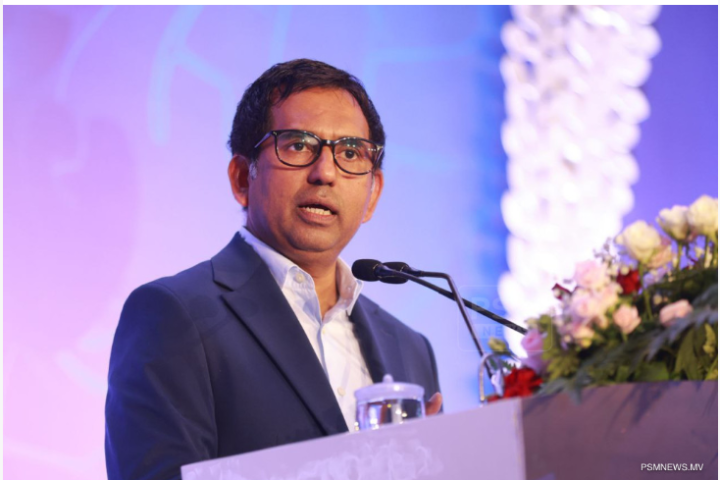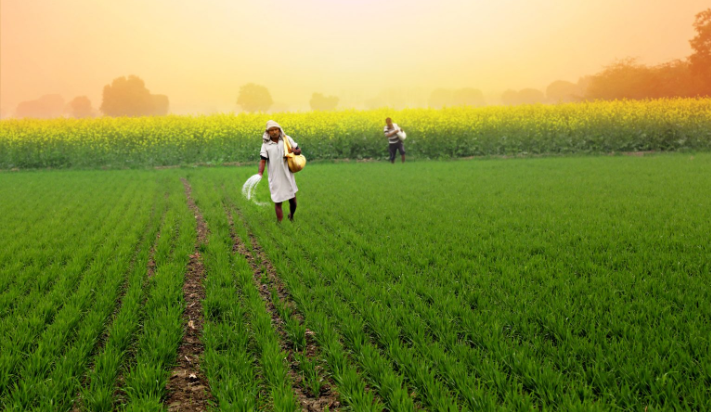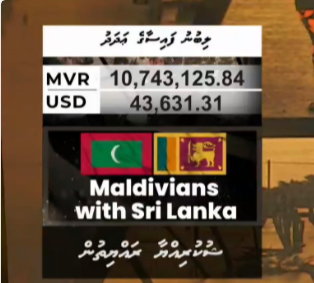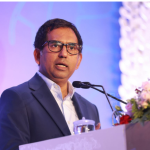MALE, — In the Maldives, a linguistic conundrum has ignited a flurry of debate and speculation. The heart of the matter is a singular sound, the Shaviyani (R+SH), which, despite being embedded in the Dhivehi language, this elusive letter is notoriously absent at the beginning of words.
Last week, a media frenzy was sparked after an interview minister Adam Naseer granted to state media PSM, which was carried by other online outlets, suggested that the Minister of National Heritage planned to introduce five new words beginning with Shaviyani. This claim, later denied by the minister, has brought the nuances of the Dhivehi language into sharp focus.
“The Dhivehi language is still a rich language,” tweeted former Heritage Minister Yumna Maumoon in response to the Shaviyani debate on social media. “There is the sound of ‘Shaviyani’ in Dhivehi but there is no word starting with Shaviyani. And that’s the uniqueness of Dhivehi language. You don’t have to invent a new word with ‘Shaviyani’ to enrich the language. That way the uniqueness of the language is lost.”
TruthMV reached out to Heritage Minister Adam Naseer for clarification about the Shaviyani storm on social media, and he confirmed that he has made no such statements about inventing five new words that start with Shaviyani.
This controversy has unveiled fascinating layers of linguistic history. The Shaviyani sound (R+SH) is a voiceless retroflex fricative, a sound that has parallels in Sanskrit. In Sanskrit, this sound is represented by the letter ‘ष’ (ṣa), indicating a shared phonetic heritage with Dhivehi language that stretches back millennia.
Reviewing online literature on the matter, German linguist Wilhelm Geiger, in his seminal work “Maldivian Linguistic Studies” (1919), attempted to describe the elusive Shaviyani: “The sound is very difficult to describe and to imitate. It varies between r, h, and s; is rather soft; and is, so far as I could observe, uttered by putting the tip of the tongue in the highest part of the palate, and letting the breath escape sideways between the teeth.”
The roots of this phonetic peculiarity can be traced to the earliest settlers of the Maldives. According to the “Kitab fi Athaari Meedoo el-Qadimiyyah” by Allama Ahmed Shihabuddeen, Shaviyani was a distinct feature of the language spoken by the Dheyvis, who arrived from Kalibanja (potentially Kalinga in India) and settled in Isduva island centuries before the Kingdom of Malik Aashooq. Despite the influx of late-Aryan settlers around 600 B.C., the unique Shaviyani sound persisted, reflecting the deep historical layers of the Dhivehi language.
In contemporary Dhivehi, Shaviyani appears at various positions within contemporary Dhivehi words, such as in ބޯށި (bōṣi – banana inflorescence), ނާށި (nāṣi – coconut shells), ދޮށި (doṣi – fishing rod), and ނެށުން (neṣuṅ – to dance). Additionally, it can accompany the diacritic sukun (ށް), often indicating an abrupt end to a word.
However, the quest to find Dhivehi words beginning with Shaviyani remains largely unfulfilled. Linguist Hussain Rasheed Ahmed, author of “Maldives Phonetics,” points out that the only known instance is the word “Sheesh,” (meaning: whistling) used in Addu, although even Adduans struggle to pronounce it correctly.
“The Shaviyani sound, represented in Latin as R+SH, is complex,” explains Ahmed. “I have seen only Late Sheikh Usmaan Abdulla pronouncing it well in his sermons.”
The Shaviyani controversy underscores the rich tapestry of the Dhivehi language and its intricate connections to Sanskrit linguistic traditions. As the country continues under Dr. Muizzu’s administration to strengthen its national identity the delicate balance between preserving linguistic heritage and evolving language use remains a poignant issue for linguists and cultural custodians alike.
For now, Shaviyani stands as a symbol of the Dhivehi language’s unique identity, a testament to the intricate history and cultural legacy of this island nation.











